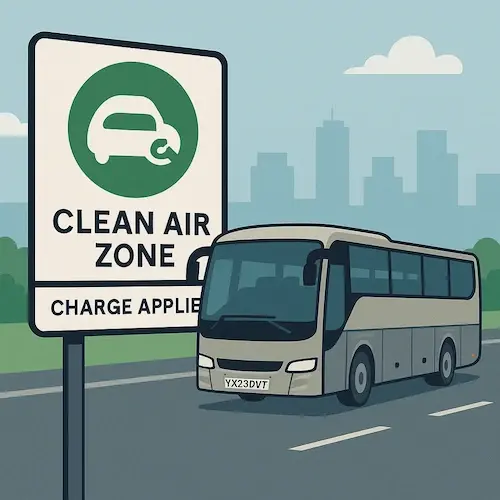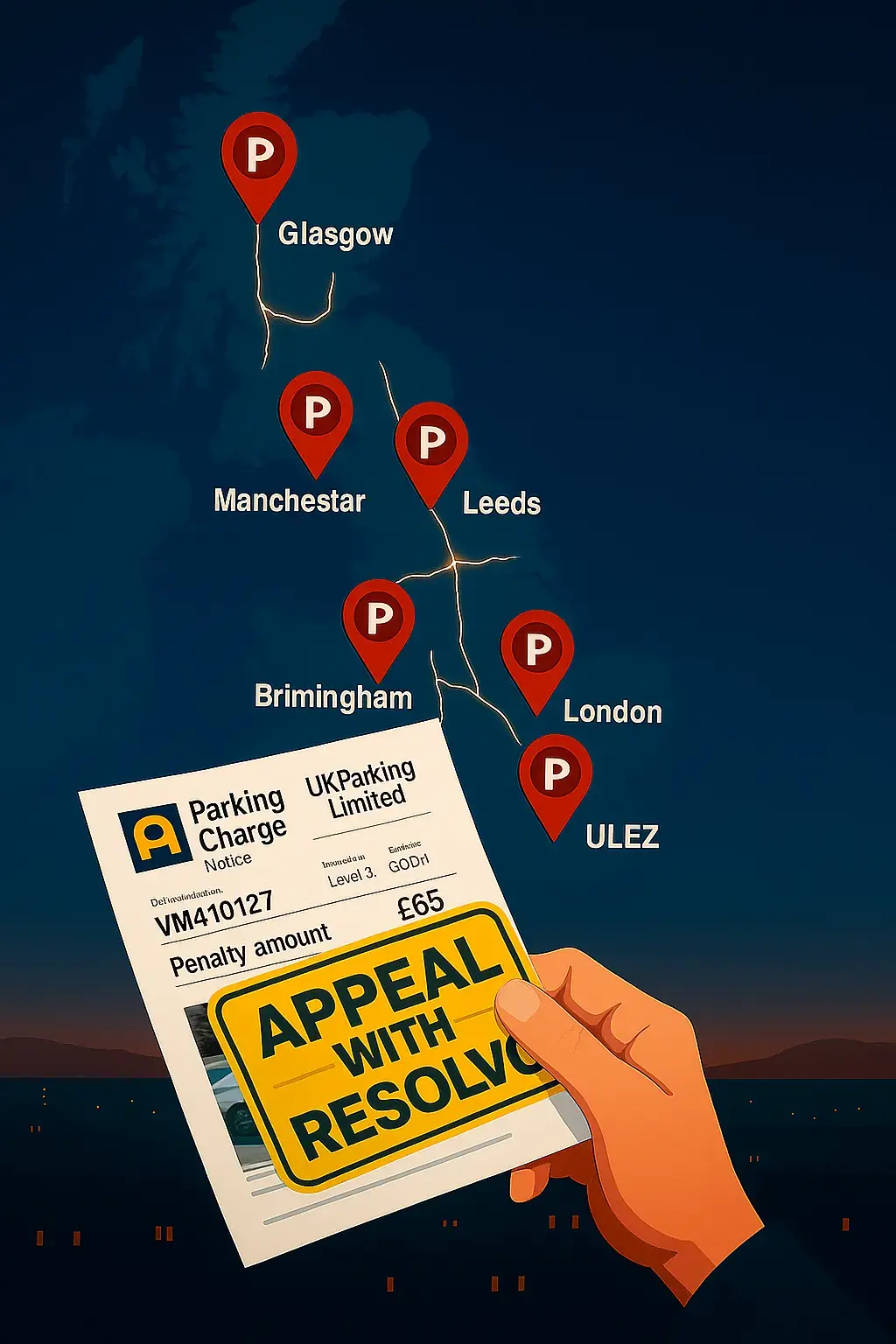If you own a vehicle in the UK and you’re not going to use it on public roads for a while — maybe it’s stored, under repair, or simply unused — then declaring a SORN (Statutory Off‑Road Notification) could save you money and keep you legal.
But what exactly is SORN? When is it required? What are the rules and pitfalls?
In this guide we’ll walk you through: definition, when it applies, how to register/cancel, benefits, risks, and extra detail on penalties, refunds, insurance, and financed vehicles. Knowing this means avoiding unexpected fines and staying compliant.
What does “SORN” mean?
SORN stands for Statutory Off‑Road Notification.It’s a formal declaration to the Driver and Vehicle Licensing Agency (DVLA) that your vehicle will not be used or parked on a public road.
In practical terms: once a vehicle is declared SORN:
You don’t need to pay road tax (Vehicle Excise Duty) while it’s off‑road.
You are still not allowed to drive or park it on a public road (except for a pre‑booked MOT test).
You may not be legally required to maintain full road insurance (though many owners still choose to have “laid‑up” or fire/theft cover).
When do you need to declare a SORN?
You should declare your vehicle off‑road (make a SORN) in any of these circumstances:
If your vehicle is untaxed and you are not using it on a public road. (GOV.UK)
If your vehicle is uninsured (even temporarily) and will not be driven or parked on a public road. (Start Rescue)
If you buy a vehicle and intend to keep it off‑road (in storage/garage) rather than drive it immediately.
If you intend to scrap or break the vehicle for parts and it will not be used on the road.
Important note: Simply not driving a car doesn’t mean you’re automatically exempt. You must formally declare SORN and keep the car off public roads to avoid tax/insurance penalties. (GOV.UK)
How to declare a SORN (step‑by‑step)
1. Gather the required information
You’ll need:
The vehicle registration number. (Cuvva)
The 11‑digit reference from the V5C logbook or the 16‑digit reference number from a tax reminder (V11). (GOV.UK Assets)
2. Choose your method
You can make a SORN via:
Online at GOV.UK. (GOV.UK)
By phone (DVLA vehicle service). Phone number 0300 123 4321
By post, using form V890. (GOV.UK Assets)
3. When does it start?
If you apply after the vehicle tax has expired, the SORN starts immediately. (GOV.UK)
If you apply in the same month your tax is due to expire, the SORN will start from the first day of the next month. (GOV.UK Assets)
4. No renewal required
Once declared, a SORN remains valid indefinitely, until you bring the vehicle back into use (tax it) or sell/scrap it. (GOV.UK)
Where must a SORN‑declared vehicle be kept?
While under SORN status:
It cannot be driven or parked on any public road or road‑related land (for example, on the street or in public car parks). (Drink Driving)
It must be kept on private land such as a driveway, private garage, or private property. (GOV.UK) Failing to keep it off‐road can lead to enforcement (see penalties section).
Can you drive a SORN‑declared vehicle?
Only in very specific circumstances:
The vehicle may be driven only to or from a pre‑booked MOT test appointment. (Drink Driving)
The vehicle must still be insured for that trip, even though normally when SORN it could be uninsured (but special laid‑up cover may apply). (Cuvva) Any other use or parking on a public road while declared SORN can lead to legal penalties and fines. (Scrap Car Comparison)
Benefits of declaring a SORN
You stop paying vehicle tax (VED) while the vehicle is off the road. (GOV.UK)
You may reduce insurance costs, by switching to a laid‑up or fire/theft‑only policy while the vehicle is off the road. (Greenlight Insurance)
Useful for vehicles in long‑term storage (classic cars, repair projects), or if you’re temporarily not using a second vehicle.
You’ll avoid fines for keeping an untaxed vehicle on a public road.
FAQs
What happens if you don’t apply for SORN when needed?
If your tax has expired and you didn’t declare a SORN, you’re liable for a penalty. For example, failing to tax or tell the DVLA you no longer have the vehicle may attract an £80 fixed penalty (reduced to £40 if paid promptly). (Start Rescue)
If you use the vehicle on the road when it is declared SORN (or when it should have been SORN and is untaxed), the offence is more serious: you could be fined up to £2,500 or five times the amount of tax chargeable, whichever is greater. (Drink Driving)
How does the DVLA enforce it?
The DVLA regularly scans vehicle records and uses ANPR cameras and registration data to detect untaxed vehicles or vehicles without SORN. (GOV.UK)
Enforcement action can include fixed penalty notices (FPNs), vehicle clamping, impoundment, and ultimately court proceedings. (CCS Collect)
What happens if you forget after tax expires?
If you fail to declare SORN when your tax expired and the vehicle remains off the road, you may still receive a penalty for keeping an untaxed vehicle. (Scrap Car Comparison)
Even if you later apply for SORN, the penalty may still apply because the offence was committed before the SORN took effect. (CCS Collect)
Refund Information (Vehicle Tax Refunds)
When you declare a SORN, or cancel your tax because the vehicle is off the road, you’re usually entitled to a refund of full months of remaining tax after the date the DVLA receives your notification. (RIFT Refunds)
Example: If you declare SORN on 15 October and you had paid tax until end of December, you’ll get a refund for November and December (two full months), but not part of October. (Car.co.uk)
How long does it take? Refunds are typically processed in 4‑8 weeks after DVLA receives the SORN/cancellation request. (We Buy Any Car)
Refunds are often issued by cheque sent to the address on the V5C logbook or by direct debit cancellation. (GOV.UK)
Insurance Details for SORN Vehicles
What is “laid‑up cover” or “SORN insurance”?
When you declare your vehicle SORN, you are not legally required to carry standard road insurance provided the vehicle is off the road and kept on private land. (Chris Knott Insurance)
However, many choose to take out specialist “laid‑up” or “SORN insurance” to protect the vehicle against fire, theft, vandalism and damage while it’s off the road. (Heritage Car Insurance)
This type of cover does not include third‑party liability for driving, because the vehicle is not on the road. (Cuvva)
What happens to your no‑claims bonus or regular cover?
If you switch from normal insurance to laid‑up cover, you may lose or reduce your no‑claims bonus accumulation for that period (because you’re no longer actively driving).
If the vehicle is insured under finance or you plan to return to road use soon, it may be advisable to maintain comprehensive cover or discuss your policy with your insurer.
Insurance implications for financed vehicles
If the vehicle is on finance or lease, the lender may require it to remain fully insured even while declared SORN (depending on your agreement). Make sure to check your finance contract.
Using a SORNed vehicle on private land is allowed, but any breach of your finance/insurance terms (e.g., using it on a public road) could invalidate your policy or breach your lender’s conditions.
SORN and Vehicle Finance / Lease
Yes — you can declare a SORN on a vehicle that’s still on finance or lease, provided your contract allows it and the vehicle remains off the public road.
You must check with the finance provider or leasing company: they may insist on continuous full insurance cover, or may require you to pay tax regardless.
If you miss their requirements (for example, allowing the vehicle to appear untaxed on public roads), you risk breaching your agreement, potentially triggering recall or additional charges.
Always notify both your insurer and finance company that the vehicle is off the road and declared SORN.
When is SORN a good idea?
Consider declaring SORN if:
You have a vehicle you’re not going to use for an extended period (storage, repair, classic car lay‑up)
You want to avoid paying tax while the car is off the road
You are confident the car will remain off public roads, parked on private land the whole time
You’re willing to switch to specialist “laid‑up” insurance if you want protection while it’s off the road
Conclusion
Declaring a SORN is a smart legal tool for vehicle owners in the UK who are putting their car off the road for an extended period.
It stops the accrual of vehicle tax and allows flexibility in insurance costs — but it comes with strict conditions: the vehicle must stay off public roads, it must not be used for driving or parked in a way that qualifies as “on the road”, and you must apply it properly.
You also need to check insurance and finance implications if applicable. Do it right, and you can save money and stay compliant. Get it wrong — and you could face fines up to thousands of pounds, clamping, or impoundment.
Related Posts

Clean Air Zones (CAZ) in the UK: All You Need to Know in 2025
27 October 2025
Driving through a Clean Air Zone in 2025? Find out which UK cities have CAZs, what vehicles are charged, who’s exempt, and how to appeal a fine with Resolvo

6 Parking Fines That Would Cost You £630: How to Fight and Beat Them
22 June 2025
Got a parking ticket? Learn how to appeal Dart Charge, ULEZ, parking, or bus lane fines with Resolvo in under 2 minutes for free.

The Cost of Owning a Car in 2025: What Drivers Forget
27 October 2025
Thinking of buying or budgeting for a car in 2025? Discover the true cost of car ownership — from insurance and MOTs to hidden charges and new tax rules. Get smart with Resolvo’s free car tools
